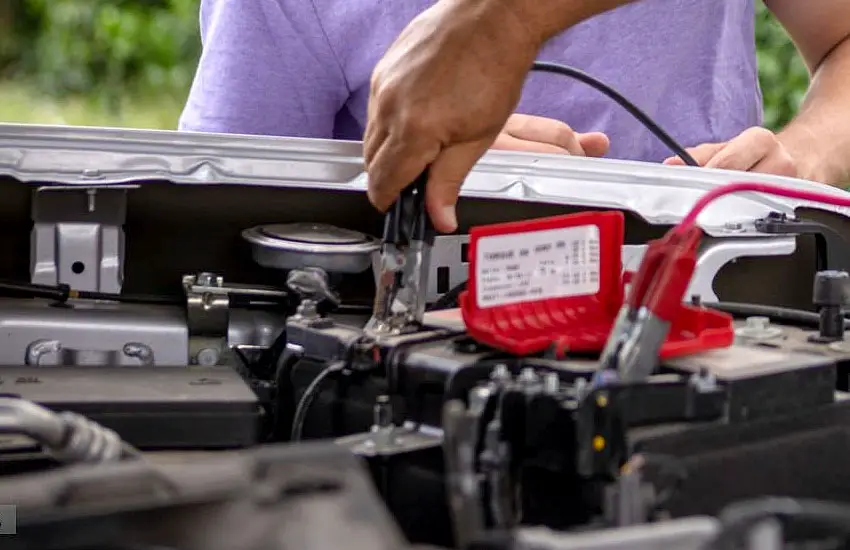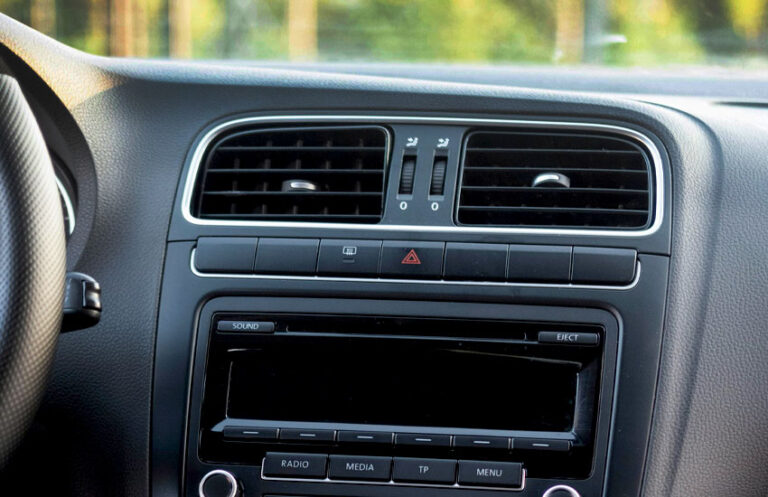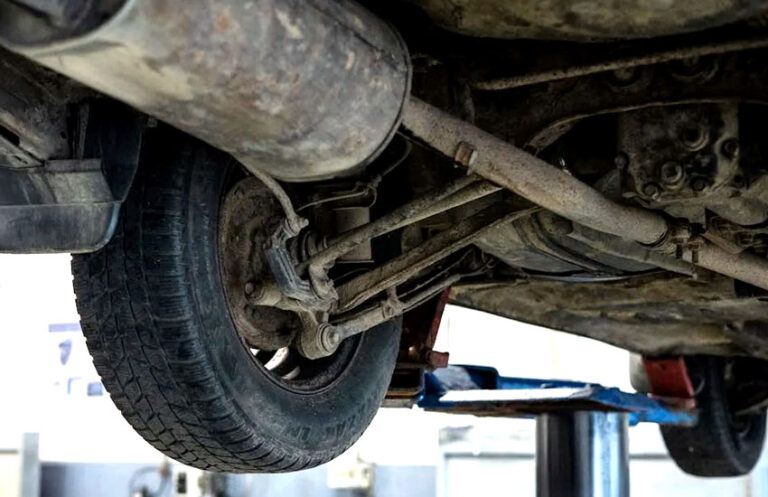No matter how careful you are, sometimes your car just won’t start, even after a battery change. If you’ve recently swapped out the old battery in your Toyota Camry and it’s still giving you trouble, don’t worry—you’re not alone! This can be super frustrating, but there are a few common reasons this happens. In this blog post, we’ll explore why your Camry might be acting up and what you can do to fix it. Let’s dive in and get your ride back on the road!
Toyota Camry Won’t Start After Battery Change: The Ultimate Troubleshooting Guide

1. Check the Battery Connections
The first thing to do when your car won’t start after changing the battery is to look at the battery connections. When you put in a new battery, it is very important that the battery cables are connected properly. These cables have two parts: the positive (+) and the negative (-) connections.
The positive cable usually has a red cover, and the negative cable usually has a black cover. Check if the cables are clean and tight on the battery terminals. If they are loose or not connected well, the car might not get enough power to start.
To check, you can try to wiggle the cables. If they move easily, you need to tighten them. You can use a wrench or a socket to do this. Make sure you do not touch the cables with your hands while the battery is connected because this can give you a shock. If you see any corrosion, which looks like white or green powder around the cables, you need to clean it off.
You can use a mixture of baking soda and water to clean the terminals. After cleaning, rinse with water and dry it off. Then, reconnect the cables tightly. Once everything is secure, try to start the car again. If it starts, great! If not, you will need to try the next step.
2. Reset the Electrical System
Sometimes, when you change the battery, the car’s electrical system can get confused. This can happen because the battery acts as the main power source for all the electronics in the car. To reset the electrical system, you can disconnect the negative cable from the battery again. It is important to always disconnect the negative side first because it helps prevent any sparks. Leave it disconnected for about 10 to 15 minutes. This break can help clear any temporary issues with the system.
After waiting, reconnect the negative cable and make sure it is tight. Then, try to start the car again. Sometimes, resetting the system can help it recognize the new battery and get everything working again. If the car starts, then the problem was just a temporary issue with the electrical system. But if it still does not start, don’t worry! You can move on to the next step.
3. Check the Fuses
If your car is still not starting, the next thing to check is the fuses. Fuses are small safety devices in the car that protect the electrical circuits. If a fuse is blown, it can stop electricity from getting to important parts of the car, including the starter. You can find the fuse box in your Camry; it is usually located under the dashboard or in the engine compartment.
Open the fuse box and look for the diagram that shows which fuse controls what. Check the fuses related to starting the engine. A blown fuse will look different; it might have a broken wire inside or the glass may look dark. If you find any blown fuses, you will need to replace them with new ones of the same rating. You can buy fuses at any auto parts store. Once you replace the blown fuses, close the fuse box and try to start the car again. If it still doesn’t start, keep reading for more steps.
4. Try Jump-Starting
If the car still won’t start, the new battery might be weak or not charged enough. You can try jump-starting the car with jumper cables. To do this, you will need another car with a working battery. First, park the other car close enough so that the jumper cables can reach both batteries. Make sure both cars are turned off.
Take the jumper cables and connect them properly. First, connect one end of the red cable to the positive terminal of the dead battery and the other end to the positive terminal of the good battery. Then, take the black cable and connect one end to the negative terminal of the good battery and the other end to a metal part of the car with the dead battery. This metal part acts as a ground and helps prevent sparks. After everything is connected, start the car with the good battery and let it run for a few minutes. Then, try starting your car. If it starts, great! But if it still doesn’t, you may have a more serious problem.
5. Check the Starter Motor
If you hear a clicking noise when you try to start the car, it could mean there is an issue with the starter motor. The starter is a small motor that helps get the engine running. Sometimes, the starter can become faulty and not work correctly. You can test the starter by gently tapping it with a hammer while someone else tries to start the car. This might help it engage if it is stuck.
If tapping the starter does not work, it may need to be replaced. You might want to consult a mechanic for this step because starters can be tricky to replace if you are not familiar with car repairs. If the car starts after tapping the starter, it is a sign that it is failing and may need to be replaced soon.
6. Look for Error Codes
If the car still does not start and there is a check engine light on, it is a good idea to check for error codes. You can use an OBD-II scanner to read the codes from the car’s computer. Many auto parts stores will do this for free. The error codes will tell you what problems the car is having. Sometimes, a specific issue can cause the engine not to start, like a problem with the fuel system or sensors. Once you have the codes, you can look them up online or ask a mechanic for help in understanding what they mean.
After checking the error codes and addressing any issues, try starting the car again. If it still doesn’t start, you may need to check further for other problems, like fuel delivery issues.
7. Security System Issue
Another reason why your Camry might not start after a battery change is related to the car’s security system. Many modern cars have an immobilizer, which is a safety feature that prevents the car from being stolen. Sometimes, when the battery is changed, the system can get confused. If you have a key fob, try using a different key or ensure the key fob has a working battery.
If the security light is flashing or staying on when you try to start the car, it may indicate that the system is not recognizing your key. In this case, you might need to reset the security system. Check the owner’s manual for instructions on how to reset it, or consult a mechanic for help.
8. Fuel Issues
If everything else looks good and the car still won’t start, make sure you have fuel in the tank. It sounds simple, but sometimes the fuel gauge can be wrong. If you hear the fuel pump running when you turn the key to the “on” position, that’s a good sign that fuel is getting to the engine. If you don’t hear anything, it may indicate a problem with the fuel pump or fuel delivery system.
If you suspect a fuel issue, you may need to check the fuel pump or filters. A mechanic can help diagnose any issues with the fuel system to make sure the car is getting the fuel it needs to start.
9. Check for any Obvious Problems
Lastly, look for any obvious problems that could prevent the car from starting. Check for any leaks under the car, especially around the battery, fuel lines, and engine. Also, listen for any strange sounds or smells when you try to start the car. Sometimes, visual checks can reveal loose wires or damaged parts.
If you see anything unusual, it is a good idea to consult a mechanic to help you figure out the issue. They can do a more thorough inspection and diagnose problems that may not be obvious to you.
I hope this guide helps you find out why your Toyota Camry won’t start after changing the battery. By following these steps, you can troubleshoot why your Toyota Camry won’t start after a battery change. If you try all these things and the car still won’t start, it might be best to take it to a mechanic who can help diagnose and fix the problem.
Are These Questions in Your Mind?
Is it safe to jump-start my Toyota Camry?
Yes, it is safe to jump-start your Toyota Camry as long as you follow the proper steps. Make sure both cars are off before connecting the cables and follow the correct order to avoid any sparks or damage.
Can I use any battery for my Toyota Camry?
No, you should not use just any battery. It is important to use a battery that fits your Camry’s specifications, including size and power requirements. Always check your owner’s manual for the right type of battery.
Do I need to reset my car’s computer after changing the battery?
Sometimes, yes. After changing the battery, the car’s computer may need a reset to clear any stored errors. Disconnecting the negative cable for a short time can help reset the system.
Is it normal for my battery to lose charge quickly?
No, it is not normal for a new battery to lose charge quickly. If this happens, it may indicate an issue with the battery itself, the alternator, or something draining power when the car is off.
Can a bad alternator cause starting problems?
Yes, a bad alternator can cause starting problems. If the alternator is not charging the battery properly, the battery can become weak and unable to start the engine.
Do I need special tools to change the battery in my Camry?
No, you do not need special tools to change the battery. A basic wrench or socket set is usually enough to remove and replace the battery terminals.
Is it possible for the starter to be faulty after changing the battery?
Yes, it is possible. If the starter was already weak or failing before the battery change, it might show problems now that the battery is new and can provide more power.
Can I clean the battery terminals with water?
No, you should not use water to clean battery terminals. Instead, use a mixture of baking soda and water to remove corrosion, and make sure to dry the terminals afterward to prevent any issues.
Is it necessary to have my car’s electrical system checked regularly?
Yes, it is a good idea to have your car’s electrical system checked regularly. Regular maintenance can help catch any issues before they become bigger problems, especially in older vehicles.
Do I have to replace both battery cables if one is damaged?
Not always, but it is a good idea. If one battery cable is damaged, the other may also be worn out. Replacing both can ensure better performance and reliability for your vehicle.






